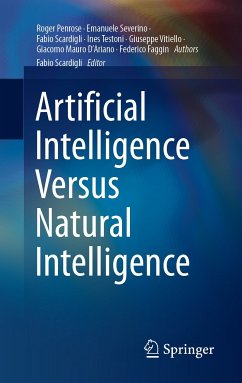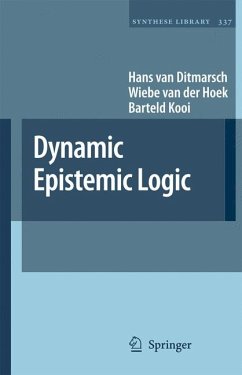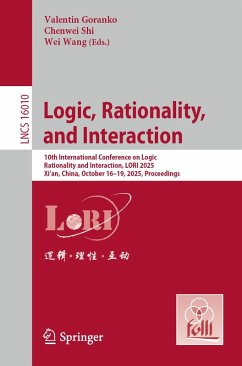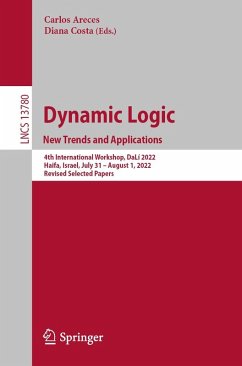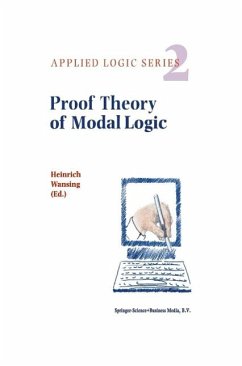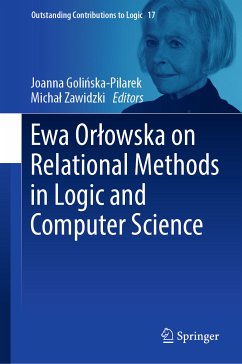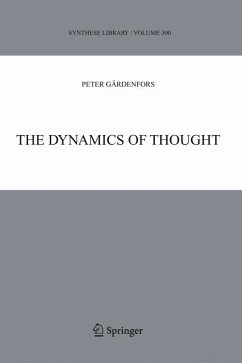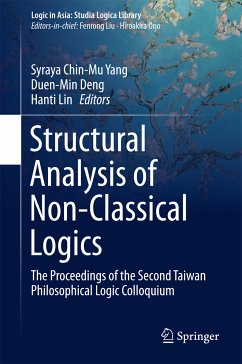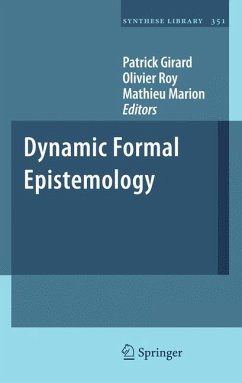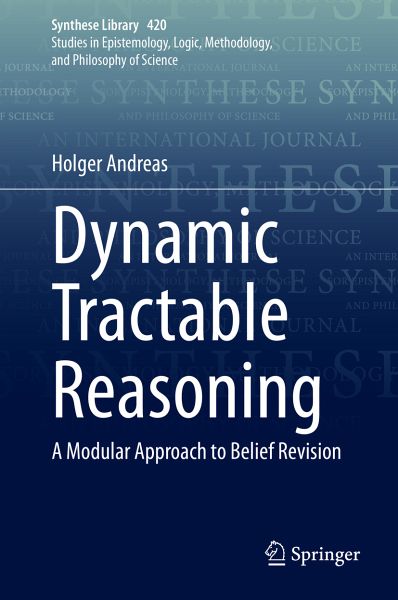
Dynamic Tractable Reasoning (eBook, PDF)
A Modular Approach to Belief Revision
Versandkostenfrei!
Sofort per Download lieferbar
46,95 €
inkl. MwSt.
Weitere Ausgaben:

PAYBACK Punkte
23 °P sammeln!
This book aims to lay bare the logical foundations of tractable reasoning. It draws on Marvin Minsky's seminal work on frames, which has been highly influential in computer science and, to a lesser extent, in cognitive science. Only very few people have explored ideas about frames in logic, which is why the investigation in this book breaks new ground. The apparent intractability of dynamic, inferential reasoning is an unsolved problem in both cognitive science and logic-oriented artificial intelligence. By means of a logical investigation of frames and frame concepts, Andreas devises a novel ...
This book aims to lay bare the logical foundations of tractable reasoning. It draws on Marvin Minsky's seminal work on frames, which has been highly influential in computer science and, to a lesser extent, in cognitive science. Only very few people have explored ideas about frames in logic, which is why the investigation in this book breaks new ground. The apparent intractability of dynamic, inferential reasoning is an unsolved problem in both cognitive science and logic-oriented artificial intelligence. By means of a logical investigation of frames and frame concepts, Andreas devises a novel logic of tractable reasoning, called frame logic. Moreover, he devises a novel belief revision scheme, which is tractable for frame logic. These tractability results shed new light on our logical and cognitive means to carry out dynamic, inferential reasoning. Modularity remains central for tractability, and so the author sets forth a logical variant of the massive modularity hypothesis in cognitive science.
This book conducts a sustained and detailed examination of the structure of tractable and intelligible reasoning in cognitive science and artificial intelligence. Working from the perspective of formal epistemology and cognitive science, Andreas uses structuralist notions from Bourbaki and Sneed to provide new foundational analyses of frames, object-oriented programming, belief revision, and truth maintenance. Andreas then builds on these analyses to construct a novel logic of tractable reasoning he calls frame logic, together with a novel belief revision scheme that is tractable for frame logic. Put together, these logical analyses and tractability results provide new understandings of dynamic and inferential reasoning.
Jon Doyle, North Carolina State University
This book conducts a sustained and detailed examination of the structure of tractable and intelligible reasoning in cognitive science and artificial intelligence. Working from the perspective of formal epistemology and cognitive science, Andreas uses structuralist notions from Bourbaki and Sneed to provide new foundational analyses of frames, object-oriented programming, belief revision, and truth maintenance. Andreas then builds on these analyses to construct a novel logic of tractable reasoning he calls frame logic, together with a novel belief revision scheme that is tractable for frame logic. Put together, these logical analyses and tractability results provide new understandings of dynamic and inferential reasoning.
Jon Doyle, North Carolina State University
Dieser Download kann aus rechtlichen Gründen nur mit Rechnungsadresse in A, B, BG, CY, CZ, D, DK, EW, E, FIN, F, GR, HR, H, IRL, I, LT, L, LR, M, NL, PL, P, R, S, SLO, SK ausgeliefert werden.
Alle Preise in Euro und inkl. der gesetzl. MwSt. | Innerhalb Deutschlands liefern wir preisgebundene Bücher versandkostenfrei. Weitere Informationen: bitte hier klicken
Support
Bitte wähle dein Anliegen aus:
Rechnungen
Bestellstatus
Retourenschein
Storno



